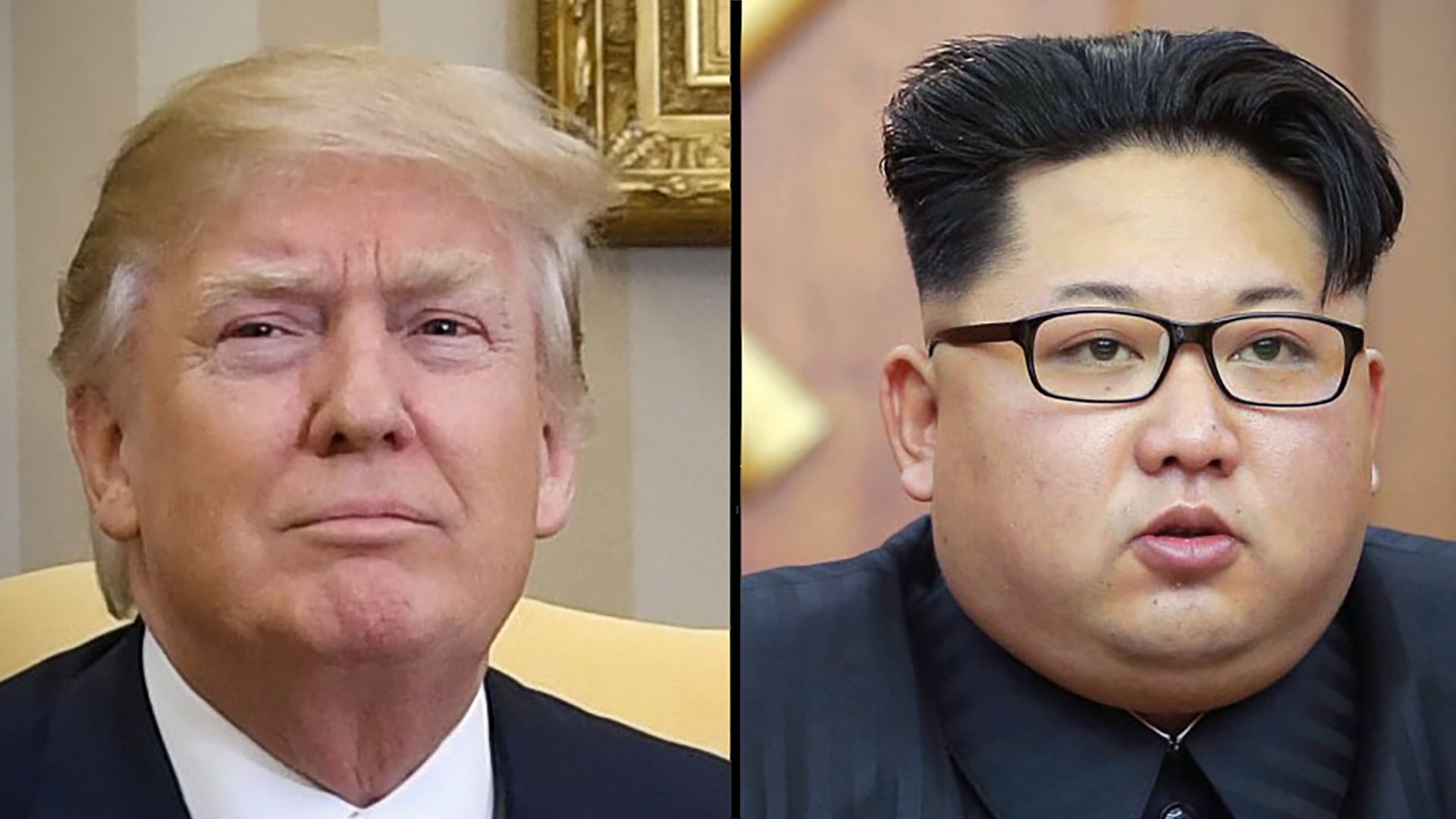Following the South Korean delegation’s groundbreaking dinner meeting with Kim Jong Un in Pyongyang last week, it was clear that the North Korean premier is now pushing forward with an entirely new strategy when it comes to engaging diplomatically with the South and the United States. The supposed letter that South Korea subsequently rushed in person to the Washington, DC was an invite from Kim to meet directly with Donald Trump to discuss the nuclear standoff situation. Trump not only agreed to the invitation, but he said the meeting needs to happen no later than May. The whole affair signals a monumental and high-stakes shift in U.S. foreign policy in regards to North Korea.
The announcement that Trump would to meet with Kim Jong Un was a strange one as it was made by South Korean officials on the White House lawn after sundown. Trump made an ultra rare surprise visit to the White House press briefing room letting reporters know something was in the works, and reports state that the Pentagon was taken by surprise by the proclamation. Also missing from the whole affair was America’s top diplomat Rex Tillerson.
It’s abundantly clear that the extreme sanctions placed on North Korea, and a chilling in Pyongyang-Beijing relations, are seriously impacting the country and its economy. The regime will begin to suffer more dramatically in the coming months if something doesn’t change. And that is clearly the genesis of this change in attitude by the North, and so far the Kim regime has tightly controlled this new course of action that South Korea and now the U.S. are eagerly willing to participate in. This was not the case just a month ago when it was still stated that multiple preconditions would have to be met in order for the U.S. to engage directly at all with North Korea.
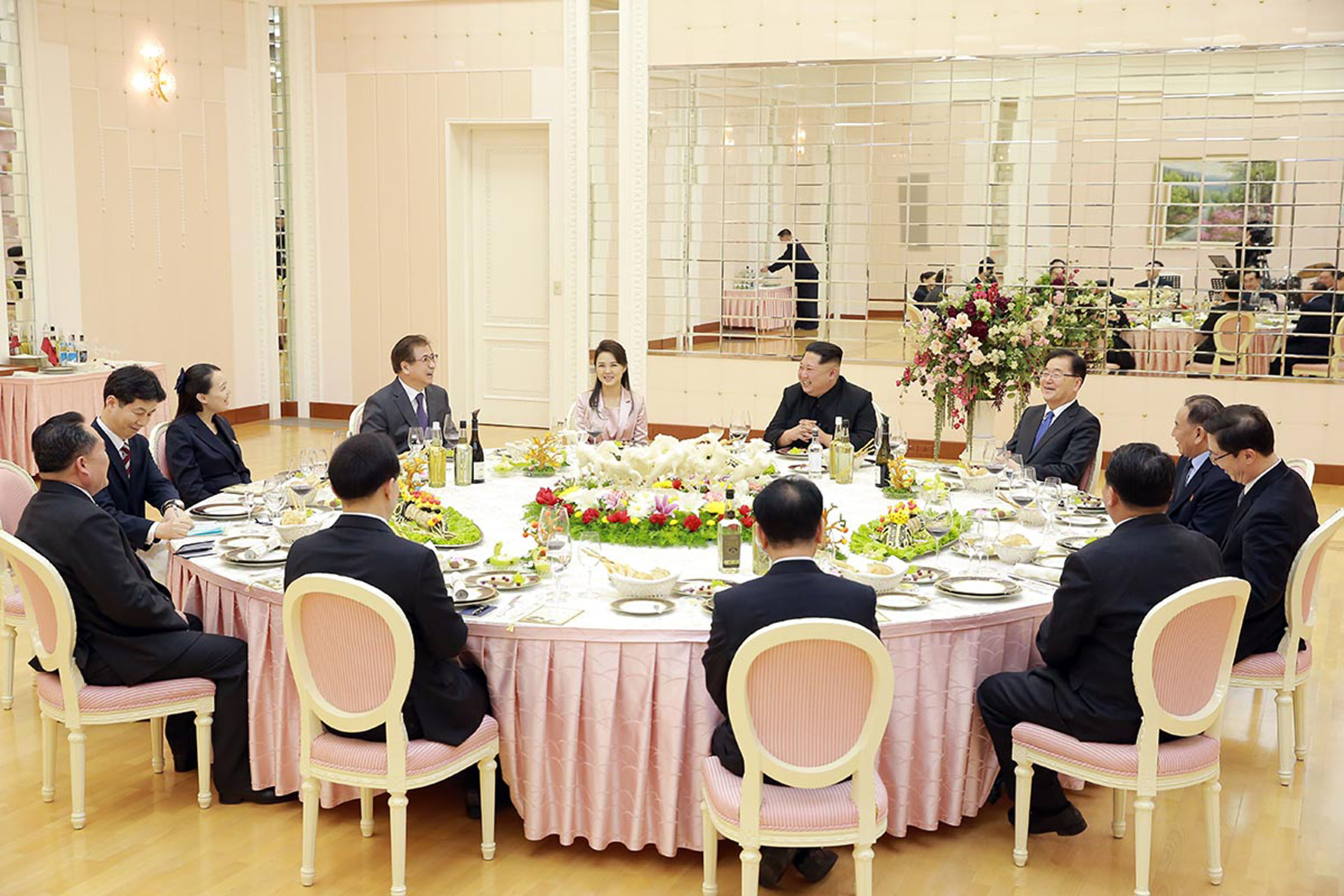
Kim Jong Un knows that Trump can be swayed heavily by in-person contact and flattery, and that he isn’t bothered by brushing shoulders with dictators. Kim’s advisors have watched how Trump demonized China for years only to become best buddies with Xi Jinping and drastically ratcheting down the rhetoric towards Beijing as a result. With a nuclear arsenal already assured, not to mention a nearly complete long-range delivery system, the timing is right for Kim to try make some sort of deal, or at the very least prolong his timetable to better fortify his missile capabilities while also realizing some relief from crushing sanctions.
Kim also knows that South Korean President Moon Jae-In is a unique partner after he has rebuffed U.S. concerns about bilateral talks with North Korea in hopes of deescalating the military standoff. But above all else, Kim is set to get what his father always wished for, direct talks with the U.S. at the highest levels, and recognition on a peer level by the world’s only superpower.
But don’t be fooled by a simple invitation and deflated rhetoric, North Korea has no intention of giving up its nuclear arsenal. As we have discussed many times over, a freeze on nuclear weapons and missile development may be possible, but the idea that Trump’s presence would result in North Korea freely releasing what it has spent decades and countless resources developing—and what the regime sees as its primary insurance policy and only real bargaining card, is a laughably naive proposition.
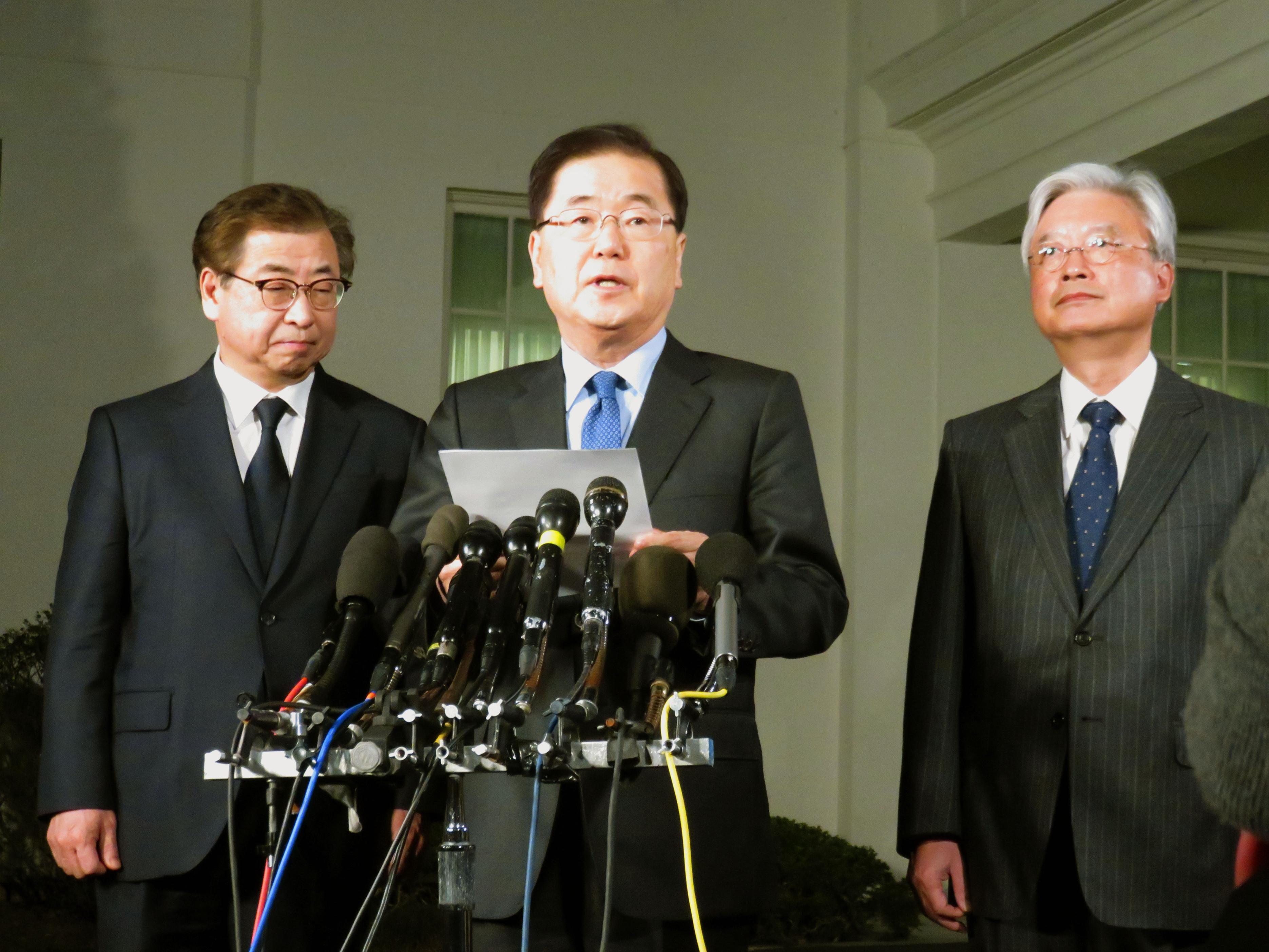
But regardless of these issues, President Trump needs to be applauded for seizing on this opportunity and leading from the front when it comes to negotiating with one of America’s most vicious and long-standing enemies. For years I have written how the U.S. needs to drop the failing strategy of decades past and engage directly with North Korea on the highest levels. I have praised Donald Trump time and again for stating that he is willing to talk to Kim Jong Un one-on-one. I wrote the following in May of 2016:
“The fact of the matter is that the North Koreans have had one major ask over the last decade-and-a-half of fragmented negotiations: unilateral negotiations with the United States, which they still ask for today.
The US has been absolutely steadfast in not granting this single request, and it’s infuriated the North Koreans. Sure, old-school diplomatic insiders and traditional pundits will say that doing so will simply elevate the North Korean regime and lend legitimacy to Kim Jong Un’s rule. Well, guess what? Kim Jong Un is the ruler of North Korea whether you like it or not, and considering that we’ve talked to other dictators in the past, and have even subsidized their power structure, why is talking to Kim Jong Un any different?
Above all, the long-standing policy toward North Korea has been a therapeutic solution at best. Now that the North Korean state is racing towards long-range nuclear ballistic missile capability and miniaturizing its nuclear warheads, the time for a change in our diplomatic strategy has clearly come.
Simply sitting down with Kim Jong Un, or at least having high-level unilateral negotiations with officials from both sides, will change the game and will at the very least allow us to see if this new approach is capable of being effective or not.
Going into the room with an incredibly strong package—including energy and food resources, a structured plan to open up the North Korean economy to foreign investment, illustrating what the lifting of harsh sanctions will look like for the North Koreans, and a route for normalization and reconciliation with South Korea—will provide the best shot at ending 60 years of bitter and dangerous tension. In addition, China and other nations can be a major part of this opportunity, but the US has to lead it and a President should deliver it. Doing so will mark an unprecedented and powerful diplomatic gesture, one that North Korea will know they won’t likely ever get again.
If such an effort fails miserably, what’s lost? Nothing tangible. The North Koreans will spin their state-level propaganda any way they want, regardless of the outcome. They do it every day. The US will look like it’s serious about peace on the world stage, and is willing to do anything it can to see the tension on the Korean Peninsula come to an amicable end.
For those who think it will embarrass the United States, I ask how so? If we come ready to make a deal and North Korea clearly does not, we would then be more certain of their intentions than ever, and could adjust our foreign policy and military footprint accordingly. It’s not as if the world community thinks highly of North Korea as it is; if they decided to walk away, or not show up at all, they would just go back to being the dangerous, clown-like regime they were before.”
In addition to taking the bold first steps to involve itself in such an exotic diplomatic initiative, the U.S. must be realistic about what it can actually achieve in a deal and what would come next if a deal can’t be reached. Putting together a package that would drastically decrease tensions on the Korean Peninsula while also bringing North Korea into the international community—a beachhead of diplomacy if you will—that would have an architecture of carrots and sticks in which North Korea could change with dignity over time is absolutely key. Blatantly playing extreme hardball by saying ‘give up your nukes or it’s war’ will likely end progress before it even starts, or worse. But if you have read Art Of The Deal, Trump’s business negotiating style is exactly this.
Kim’s calculation that he can woo Trump with flattering and pomp and circumstance is likely a well calculated one, but maybe that’s not such a bad thing either as it could allow the President to moderate his extreme demands in exchange for getting diplomatic momentum moving in a positive direction. Yet the real pitfall here is in North Korea’s true intentions and its long-history of not abiding by any comprehensive deals it has agreed to in past.
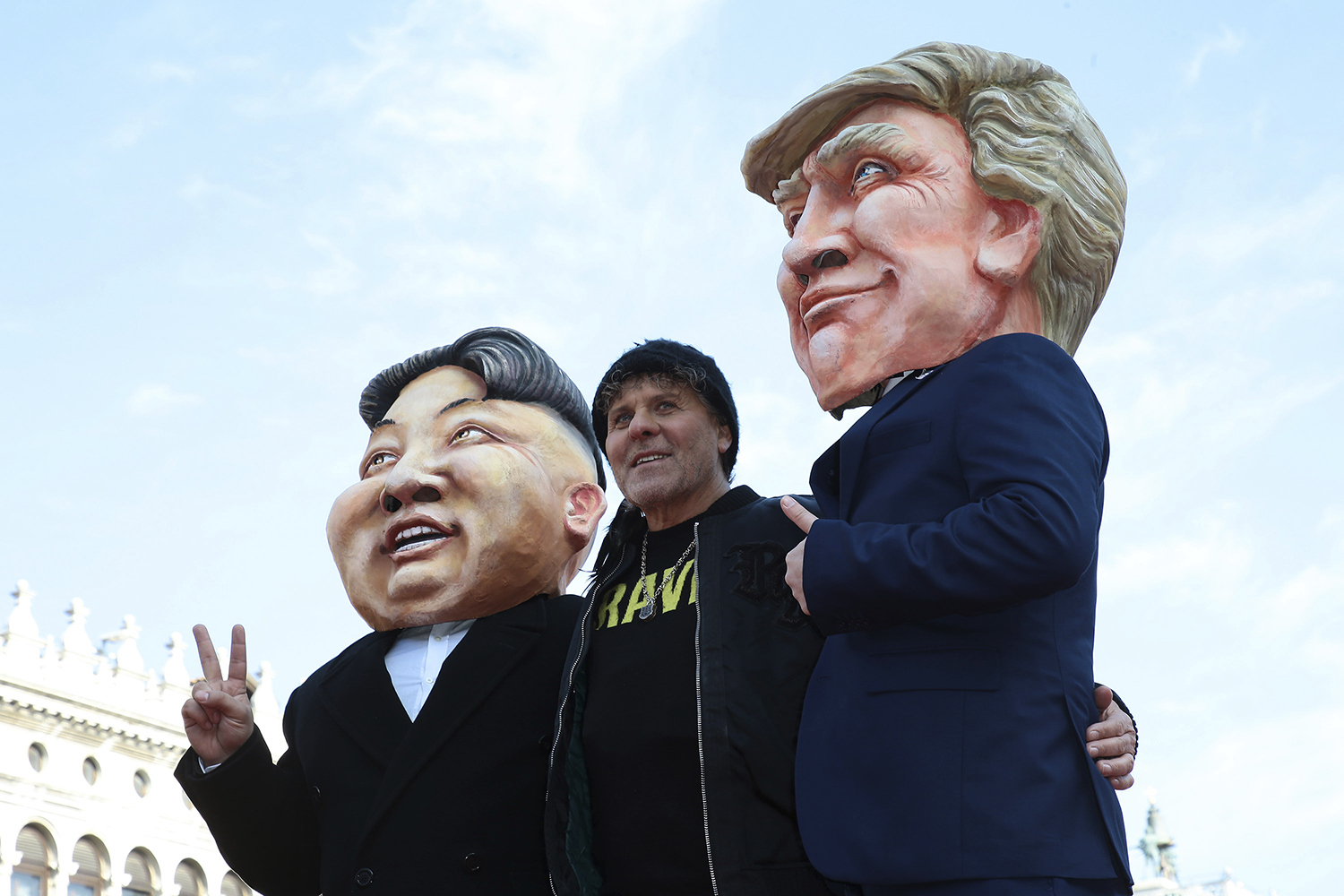
But Kim Jong Un is not his farther. He has been startlingly forthcoming and accurate about his nuclear and missile programs. Maybe he wouldn’t mind a more stable situation either at this point. But once again, freezing testing and manufacturing of missiles and nuclear warheads is far cry from giving them up altogether. Any deal at all would have to include invasive inspections and verification protocols, something that reclusive North Korea has reneged on in the past. There are also the questions of military posture, including the status of forces along the DMZ, and especially America’s conventional forces footprint in South Korea, that will likely have to be addressed as well. In other words, there is no ‘simple agreement’ here, any deal short of total capitulation will be convoluted and full of its own roadblocks and pitfalls.
Still, this engagement will notionally provide diplomats with a chance to ask what would it take for North Korea to denuclearize. If they are willing to respond to that at all, even if the response is totally outlandish, it will at least give a better indication of if the regime see such an outcome as possible under any circumstances at all.
With all these challenges in mind, the Trump Administration will have to get its messaging straight and its peace offering structure down ironclad. Seeing as organization on this level is an area that the White House has struggled with in the past, and considering that the meeting is already rapidly approaching, the whittled down diplomatic corps will have to work in overdrive to ready itself for such a crucial and monumental geopolitical event.
There may be only one shot at this so polishing the details to a spit shine and having everyone on the same page will be absolutely crucial when it comes to realizing any real success. Donald Trump himself will have to know his product much better than he has in past congressional dealings. Charm alone won’t change the course of history with the North Koreans.
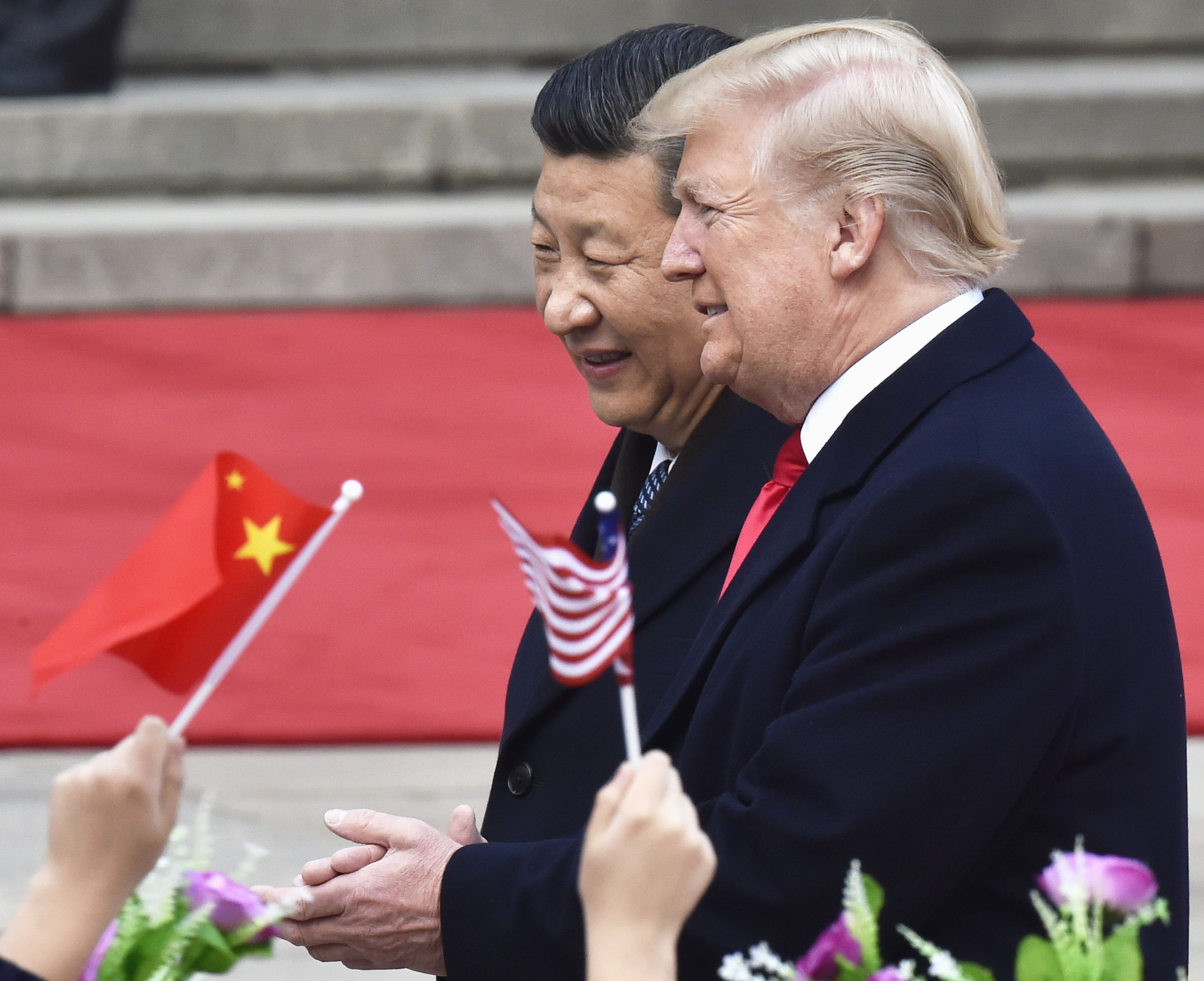
Regardless of the challenges ahead or even how this turns out, at least we are going to get a much better idea of North Korea’s level of tolerance for real change. And such a truth can be scary indeed as a negative outcome from the talks could push both sides closer to a terrible conflict. But fear of the truth is no reason not to engage with one-another directly. As it sits now, the alternative to doing so seems to be far from ideal, anyways.
As for the pundits who say this is happening too fast, and that there should be talks about setting up high-level talks, they are totally missing the point. Those traditional forms of foreign relations have not gotten us anywhere with North Korea. If they want to move fast than rise to their challenge and execute with our best foot forward. If nothing else, you have the weight of the President himself behind this diplomatic excursion, so the North Koreans will know that they can’t play low-level diplomatic shell games as they have done for so many years.
In the end we can only hope that something good can come out of this, and if it ends up being a fruitless affair, at least we know we tried.
Contact the author: Tyler@thedrive.com
